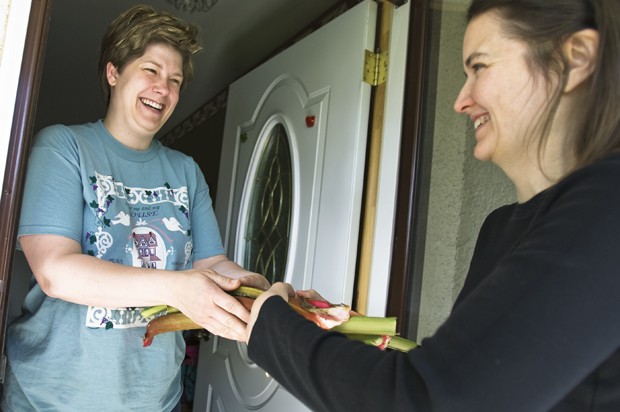Items such as âÄútons of styrofoam!,âÄù or a âÄúLeather sofa and recliner,âÄù or a âÄú1913 Schiller upright grand pianoâÄù would be destined to create landfill waste, but instead they are offered online, free for pickup in the Twin Cities. Mix the economy-fueled trend toward frugality with green sustainability and the result is the growing trend of Minneapolis residents using the Web to give and get items. Freecycle.org is a hub of Yahoo! Groups, created to match unwanted items with new owners. The Minneapolis Freecycle group, founded in 2003, has more than 15,000 members. Membership has exploded recently, Minneapolis Freecycle group moderator Dean Cummings said. âÄúPeople are being more conscious about not throwing stuff away,âÄù he said. âÄúPeople like free stuff of course, and when the economyâÄôs rough people like free stuff even more.âÄù Cummings, a 1993 graduate of the University of Minnesota, said Freecycle can be especially valuable to students. âÄúI graduated before the Internet really took off,âÄù he said. âÄúIf you wanted a couch back then, it was Goodwill or the side of the road. Couches go like crazy here. Students can really use these things.âÄù Meeting people through the trades has given Cummings a different view of the people of Minneapolis, he said. âÄúTheyâÄôre great people,âÄù he said. âÄúTheyâÄôre generous people, friendly. You pull up to someoneâÄôs house and they say âÄòhere, you want some iced tea?âÄô âÄòNo, IâÄôm just picking up your old couch!âÄôâÄù A local version of the program, Twincitiesfreemarket.org allows users to post classified-type ads, similar to CraigslistâÄôs free section. Minneapolis-based Eureka Recycling began the program more than ten years ago, Eureka spokeswoman Diana Kennedy said. Since then, it has grown exponentially. âÄúWeâÄôve seen an increase every year,âÄù she said. âÄúItâÄôs partly the green movement, and also word of mouth.âÄù Liz Grimm , 27, of Shakopee, said she has used twincitiesfreemarket.org for the past eight years. She recently posted a free garage sale on the Web site after an original attempt at a profitable one was a flop. She asked for food shelf donations, and got a huge turnout. âÄúWe got three boxes of food, and there was only one bag of stuff left over,âÄù Grimm said. âÄúPeople feel really good about using the Free Market.âÄù Kari Tholkes of Minneapolis said she started using Freecycle five years ago. Her favorite experience with the Web site happened when she lost her phone and put up a request on Freecycle for a replacement. “Four people responded,âÄù she said. âÄúOne woman gave me this amazing phone. It was far better than my old one. There are generous people out there.” The University has its own version of the online communities, called the ReUse program . The programâÄôs mission is to redistribute items back into the University, ReUse Warehouse Manager Chris Hruza said. Chairs, lab equipment, desks and filing cabinets are the most common items in the warehouse. The items are available for free to University departments for two weeks, after which time they are available to the general public for a reduced cost. All the revenue goes back into the University recycling program, Hruza said. Since July 1, 2008, the ReUse program has saved 112 tons of potential garbage from the landfill. âÄúThe industry term is avoidance âÄî what weâÄôre keeping out of landfills,âÄù he said. âÄúIf a chair comes in with one leg broken, weâÄôll fix it and make it available again.âÄù Mark Schiller , a 2009 marketing and entrepreneurship graduate, is the founding member of campus group Green Biz . He said he thinks there has been a recent increase in student interest in sustainability, partly due to âÄútalk about it from the professors, they really bring it up a lot,âÄù he said. âÄúThough, as far as actually taking action, weâÄôre still at the same point we were at âĦ We have a seriously long way to go.âÄù
Daily Email Edition
Get MN Daily NEWS delivered to your inbox Monday through Friday!

Published July 25, 2024

Published July 25, 2024

Published July 25, 2024
Trending
Web users turn trash into treasure
Web sites offering ways to recycle remain popular.

Image by Paul Bangasser
Kari Tholkes exchanges rhubarb with another freecycle member on Friday at her home in North East Minneapolis. Tholkes has been a member of the freecycle community for over 5 years and has “freecycled” everything from cell phones to birthday cakes.
Published June 9, 2009
Leave a Comment
More to Discover













